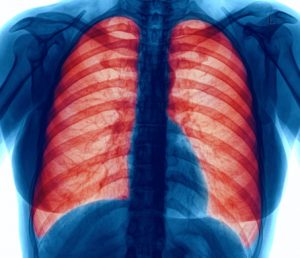
Inhaled corticosteroids – although effective for COPD management – have been associated with adverse side effects such as increasing the risk of pneumonia.
The study was based on the records from 1,165 hospitals extracted from a Japanese database.
The researchers identified 7,033 eligible COPD patients admitted with pneumonia. They divided the participants into two groups: patients taking inhaled corticosteroids with IBD therapy, and patients on IBDs only.
Patients on IBD therapy only were more likely to be older and have a lower body mass index, worse overall health, and more severe pneumonia. In this group, in-hospital mortality was 13.2 percent – compared to 8.1 percent for the combined therapy group. The researchers suggest that inhaled corticosteroids may offer protective effects against pneumonia and pneumonia-related mortality.
The researchers concluded, “Outpatient inhaled therapy with ICS [inhaled corticosteroids] and IBD was associated with lower mortality from pneumonia in patients with COPD than IBD treatment alone. ICS may have protective effects against pneumonia and help prevent pneumonia-related mortality in patients with COPD.”
Understanding the risk between COPD and pneumonia
Healthy individuals with pneumonia recover quite easily and respond well to treatment. For a COPD patient, treating and recovering from pneumonia is far more challenging, because their lungs simply don’t work as well, compared to a person without the lung disease.
Pneumonia is particularly dangerous for COPD patients – in fact, it could be life threatening. Pneumonia can greatly and negatively impact COPD and vice versa, ending up in a vicious cycle.
The best way to prevent complications associated with pneumonia in COPD is recognizing the signs and symptoms of pneumonia early on, as they differ from COPD exacerbations.
COPD symptoms and exacerbations include cough, shortness of breath, sputum production, wheezing, and chest tightness. Pneumonia will cause all these plus fever, chills and shaking, and chest pain when coughing.
By recognizing the signs of pneumonia early on, you can have greater success with treatment and lower your risk of complications or even early mortality.
Related Reading:
COPD differences: Emphysema vs. chronic bronchitis
Emphysema and chronic bronchitis are two forms of chronic obstructive pulmonary disease (COPD). Both conditions are life-long and lead to permanent lung complications, which leads to difficulties with breathing. Continue reading…
COPD patients not receiving adequate treatment in U.S, recent study
Trouble breathing? Persistent cough or frequent chest infections? This could be chronic obstructive pulmonary disease (COPD) – the name for a collection of lung diseases including chronic bronchitis, emphysema and chronic obstructive airways disease. Continue reading…
Sources:
http://pneumoniaresearchnews.com/2016/07/14/inhaled-corticosteroids-may-help-copd-patients-survive-pneumonia-in-hospitals/
https://www.dovepress.com/effect-of-outpatient-therapy-with-inhaled-corticosteroids-on-decreasin-peer-reviewed-fulltext-article-COPD